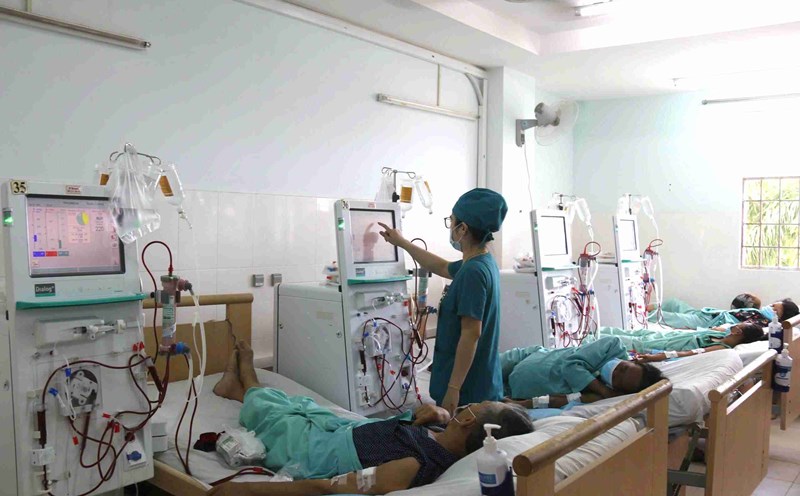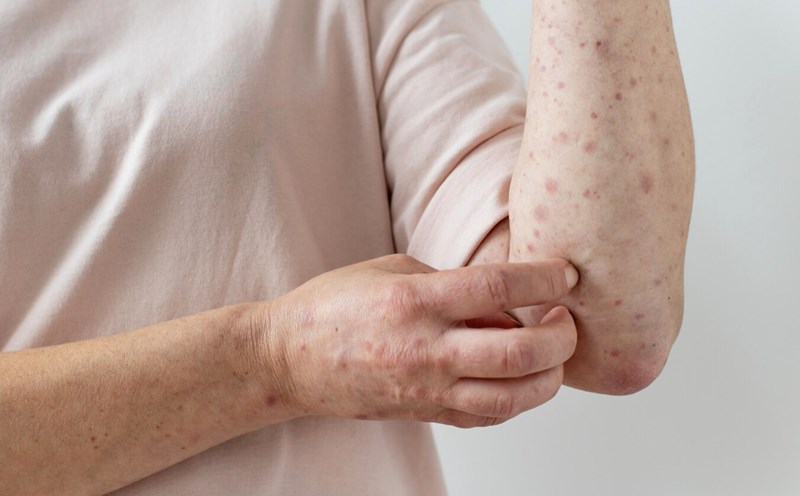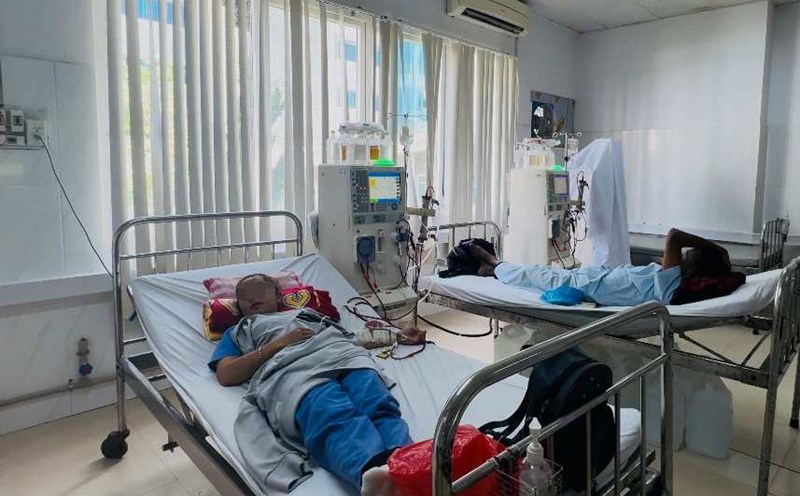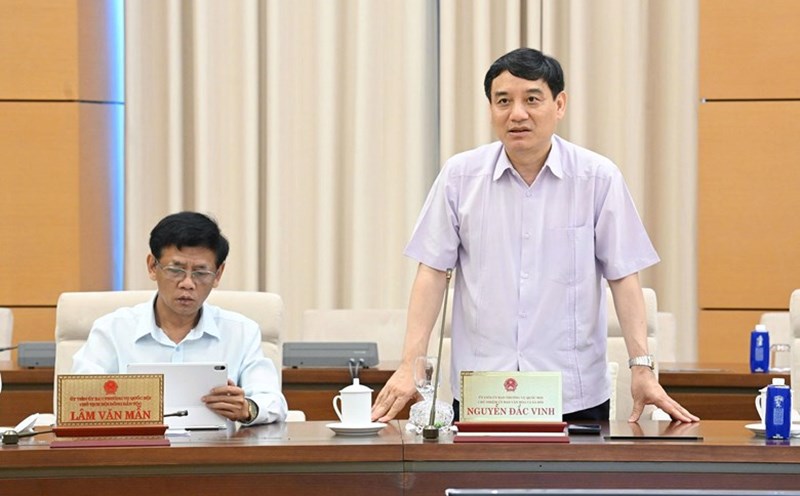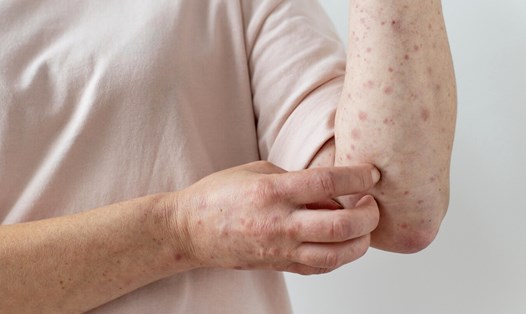Changing awareness of kidney disease
Leaving home at 4am, Ms. Tr (Dak Lak) went to Khanh Hoa General Hospital for a follow-up examination for chronic kidney disease. For the past 4 years, she has had to rent a car every month at a cost of 1.5 - 2 million VND to go to the doctor, not to mention the medicine fee of about 4 million VND/month. The family's economy was already difficult, and the disease made her family even more exhausted.
According to statistics from Khanh Hoa General Hospital, out of 512 patients with chronic kidney disease being treated, up to 90% are in difficult circumstances. The average cost of health care for an artificial kidney patient is more than 19 million VND/month. Although health insurance covers 80-100% of the cost, patients still have to take care of themselves every month from 3-5 million VND and is a lifelong burden.
Dr. Nguyen Luong Ky - Deputy Director of Khanh Hoa General Hospital - said that most patients only come to the hospital when they are in the final stage, needing immediate blood filtration.
Late detection causes high treatment costs and loss of early intervention opportunities. He emphasized that there should be a screening and detection strategy from phase 1 to phase 2 to control and slow the progression, helping patients live longer and stay healthy.
Choosing a new treatment method
According to Mr. Ky, in Vietnam, the new incidence rate of chronic kidney disease (CKD - Chronic Kidney Disease) is 120 cases/1 million people. There are more than 90,000 patients requiring dialysis and 9,000 patients with CKD who are not fully diagnosed and treated.
Nationwide, there are 350 units operating an artificial kidney with more than 5,500 machines, performing blood filtration for about 33,000 patients.
In large areas such as Khanh Hoa, Dak Lak, Lam Dong, the number of patients receiving early treatment is still very small, while facilities have not met the demand.
To reduce the burden, many hospitals have diverted patients and implemented new techniques. In particular, Khanh Hoa General Hospital is one of the leading units in the country in implementing home-based abdominal filtration solutions for blood filtration patients.
Doctor Vo Khoi Vu - Khanh Hoa General Hospital - said that abdominal filming uses the patient's abdominal cavity as a natural half-absorbed film, bringing the filter fluid into the abdominal cavity to metabolize and eliminate toxins. Patients can do it themselves at home after being instructed by a doctor, only need to go to the hospital for a check-up once a month.
This method helps patients to proactively move around, save time and costs, especially suitable for busy people. This is also a home blood filtration method that is in line with the trend of the times, helping to reduce the burden on medical staff and improve the quality of life for patients. This method is a priority choice for young, non-dibetes patients.
Approaching this method 4 years ago, Ms. Tr shared: I cant wait until Im tired at the hospital. Self-treatment at home helps me be more proactive in taking care of my family and reducing costs.
After the implementation period up to now. Khanh Hoa General Hospital is leading the country with 162 patients applying abdominal filters. However, the rate is still below 10% of the total number of chronic kidney patients. According to Dr. Vu, the reason is that the habit of treating at the hospital and medical communication is not strong enough.
He said that it is necessary to promote consultation right from the initial stage, while widely communicating so that patients know and choose. Early and proper access to the method not only improves the quality of life for patients but also reduces the pressure on large hospitals that are seriously overloaded.

